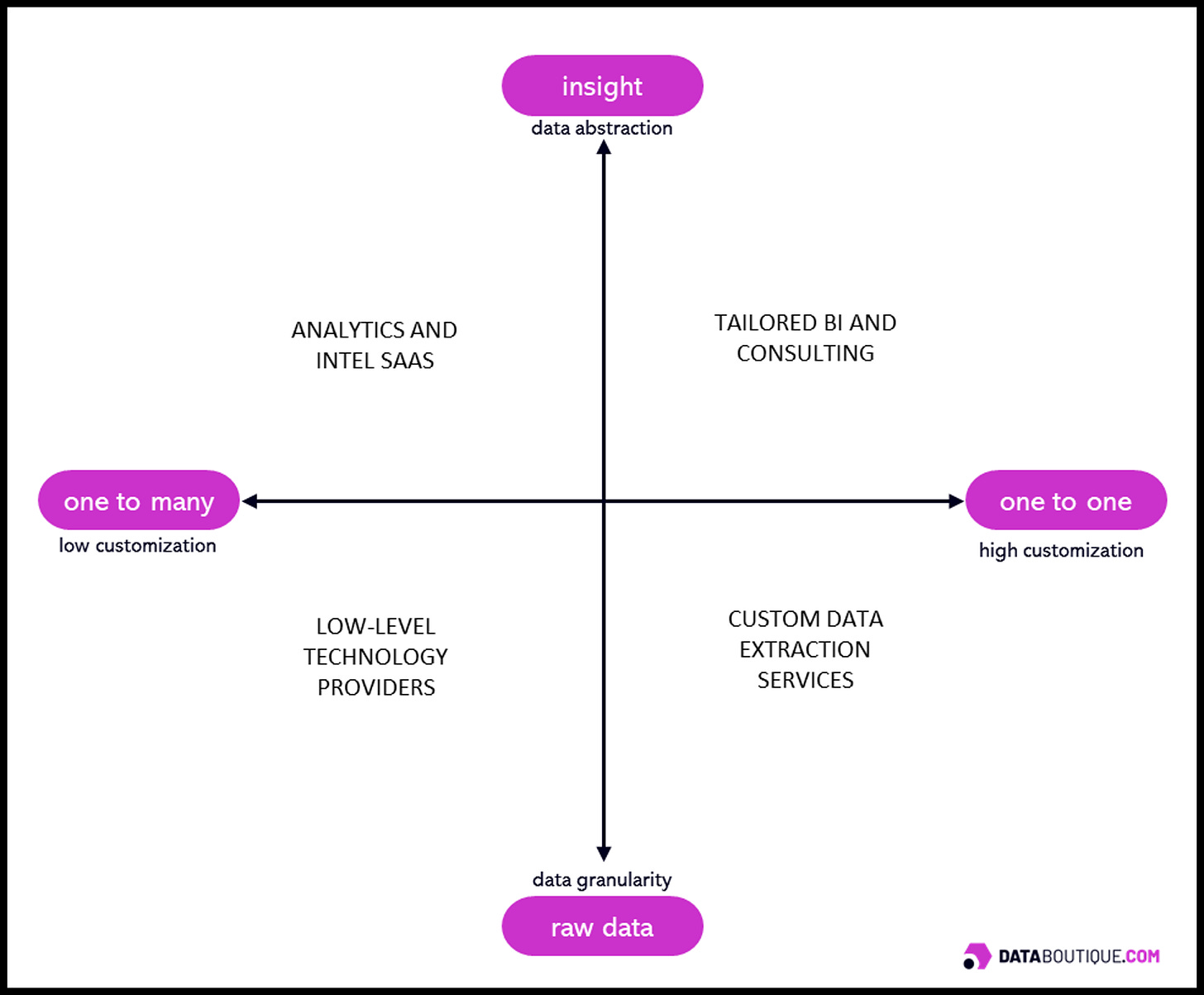The Web Data Landscape Map: Visualizing The Ecosystem
Mapping actors and solutions
The Web Data Landscape Map: Visualizing The Ecosystem
Mapping actors and solutions
Why a Map?
The “Map” is a global directory of all actors working with web data: from extracting to cleaning, trading to analyzing, and turning it into insights.
We needed a map because we trade with so many types of users that multiplying the connections between them is highly valuable for everyone, including us.
Drawing inspiration from similar initiatives like Crunchbase, we have opened our archives to the public for collective enrichment. Originating from our personal notepads, Notion, and Airtable documents, it is now a community-driven resource.
Web Data is a very fragmented ecosystem, which is thrilling, but dispersion can sometimes be a drawback for growth. Hence the initiative.
Want to be included? Read on.
Who can be on the Map?
Actors
The actors involved are companies, organizations, and freelancers (within the boundaries of privacy laws) who explicitly offer solutions related to web data. Regardless of size, geography, or sector, anyone who helps access, use, and make sense of web data.
Everyone can suggest a company to be included in the list.
Solutions
A solution is a service commonly offered to the market used for, with, or in relation to web data. The guideline is that they clearly relate to web data.
Mobile proxy, dynamic pricing, competitive intelligence, data marketplaces are valid solutions; enterprise ERP, CRM are not.
Solutions are specific (i.e. Hotel Dynamic Pricing, Residential Proxy) and don’t refer to specific providers or product names.
It is the solution that allows an actor to be listed on a map, even if a company covers various services, but one of them is in relation to web data (i.e. they do consult on how to integrate web data) they are allowed - as long as there is an explicit reference in their service portfolio.
Actors can be associated with more than one solution, and this can evolve over time. Any use can suggest a new solution and can suggest new or ceasing relationships between actors and solutions.
Who can contribute
Building an ecosystem map is a collective work. Just like the Crunchbase model, anyone can suggest entries. Contributions will be moderated, with the purpose of keeping high-quality in the map.
Actors and Solutions can be suggested by:
Registered Users: Any individual can sign up for a free account on Data Boutique and start contributing. Registered users can add profiles of companies, solutions, and individuals involved in the web data ecosystems.
Company Representatives: Individuals affiliated with a company, such as founders, employees, or authorized representatives, can claim their company's profile on Data Boutique. By claiming a profile, they can update and manage the information presented about their company, ensuring it is accurate and up-to-date, as well as posting news and links to external material.
How to Consult the Map
The Ecosystem map is public; anyone, registered or not, can access it.
The map is organized in Actors, the directory of companies, and Solutions, the directory of solutions. Both Directories are interrelated by actor-solution links.
How the Ecosystem Map works
Our model operates under straightforward rules: To qualify for inclusion, actors must provide a verifiable service related to web data.
We categorize these services broadly, accommodating a diverse spectrum from scalable one-to-many services—like proxy network providers and scraping tools—to bespoke one-to-one solutions tailored for specific needs, such as custom data extraction or consultancy for business intelligence and analytics. Additionally, our map includes everything from basic, low-level raw data services (data feeds) to more complex, high-level offerings that provide insights (market intelligence) and everything in between.
The Benefits of Being on the Map
Actors: Exposure and Lead generation
Organizations benefit from the map by gaining exposure to a wider, targeted audience at the exact moment when they are looking for a solution. They state clearly what their services are and where they position themselves in the market.
Posting relevant updates enables brand recall and awareness to a specific audience, clustered by search intent (technology, sector, solution). The ability to post CTA links in the posts also enables lead generation.
Users: Fast access to service providers
Data buyers can find who is offering the solutions they are looking for, have faster access to solutions, and understand the different offerings. The faster users extract value from data, the more they use it, which - in the end - is our goal.
Want to be featured?
You’ve reached the right place! Simply go to databoutique.com, register for free, and submit your company from the actor’s page of the Ecosystem Map.
We’ll post more on this map's evolution in this newsletter's coming editions!
About Data Boutique
Data Boutique is the data marketplace for web scraping. We make buying and selling data faster and safer for everyone.


